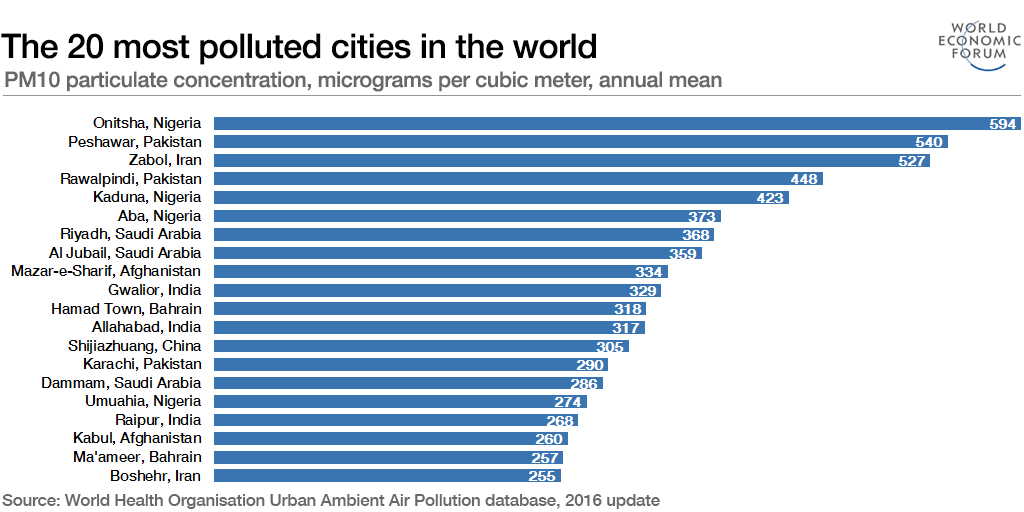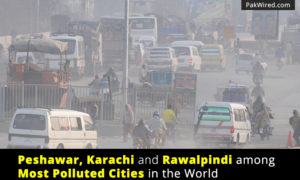According to data provided by World Health Organization (WHO), most large urban areas in the developing world are contributing more to the global air pollution.
Air pollution has climbed 8% globally during the past five years. It causes three million deaths a year, making it one of the major environmental risks to human health, according to WHO figures.
The results of the latest survey about urban air quality, conducted between 2011 and 2015, reveal that 98% of cities in low and middle-income countries do not meet WHO air quality standards.
Of the top cities in Pakistan, Peshawar, Rawalpindi and Karachi are among the 20 most polluted cities in the world, as per the most recent data from the World Health Organisation (WHO), collected from more than 1,500 cities for the years 2011 to 2015.

The 20 most polluted cities in the world. Image: World Health Organization
Peshawar ranks number two ahead of Rawalpindi and Karachi that rank at four and fourteen in the list of 20 most polluted cities in the world.
Of the air quality database of 3,000 cities in the WHO’s record, the most polluted was Onitsha, a fast-growing Nigerian city, which recorded approximately 30 times more than the WHO’s recommended guidelines of PM-10 particles. Peshawar was in second place, followed by Zabol located in Iran.
Most of these cities are located in rapidly growing countries in the South East Asia and Middle East. Three of the 20 most polluted urban areas are in Pakistan, four are in Nigeria, three are in Saudi Arabia, two are in Iran, and three in India.
China has just one city in the list of most polluted cities. The country has been trying hard to tackle air pollution that is so sever, causes wide assortment of problems. Chinese government is shutting down steel, cement, glass, and other manufacturing units. Local provincial governments have shut down several industries in the wake of rising hazards of air pollution.
Major cities across Middle East, North Africa and South East Asia showed worst statistics overall in the WHO database – with air pollution climbing 5% in more than two-thirds of these urban areas.
Annual average levels of air pollution in cities in these parts of the world often exceeded 5 to 10 times WHO standards.
Pakistan is going through a ‘big economic revolution’ and industrial transition from an agriculture-based economy to one based on technology and clean energy. The report urges our leaders and policy-makers to promote cleaner transport, more efficient energy production and waste management.
Source: WHO
Image: The News International


